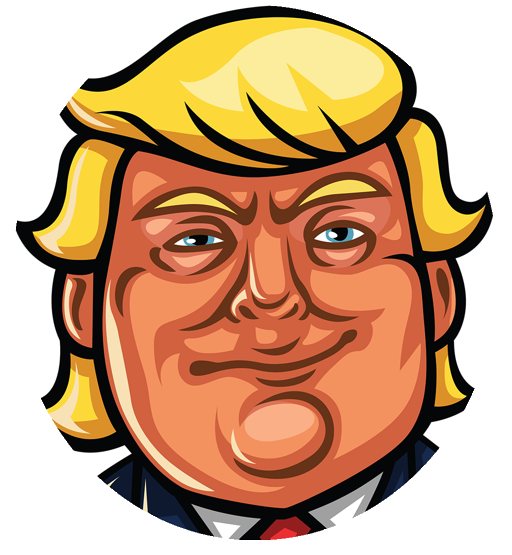This post contains an answer to all of the inane and repetitive pro-tariff talking points that you often hear from MAGA followers.
1. “But these other countries are charging higher tariffs on us!”
No. They objectively are not. The US ranks worse than the EU, UK, Canada, Australia and most other developed countries on almost every single measure and index of trade freedom. (Economic Freedom of the World, World Bank, Heritage, Tholos Foundation)
2. “But tariffs can replace the income tax!”
No. It’s mathematically impossible at our existing levels of trade. We simply do not import enough goods to match the current revenue yield of income taxes, and tariffs further diminish importation.
3. “But IEEPA authorizes the president to impose tariffs!”
No. IEEPA doesn’t even contain the word “tariff,” let alone authorize them. Multiple courts have reviewed this exact issue, and have found that Trump acted illegally by inventing a tariff power under IEEPA.
4. “But other presidents have imposed tariffs. Why can’t Trump?”
Not accurate. Other presidents have imposed tariffs using different statutes with much more narrow scope and authority. Trump is the first president to ever claim a tariff power under IEEPA in the almost-50 year period it has existed.
5. “But Trump has this authority under the Trade Expansion Act of 1962 and the Trade Act of 1974!”
No. Trump did not use those laws to impose most of his tariffs and he certainly did not meet their requirements to impose tariffs – he used IEEPA, and he did so unilaterally.
6. “But Trump’s IEEPA tariffs are just intended to be temporary due to an emergency!”
No, they are not. The Trump administration has stated it intends to maintain the IEEPA tariffs for at least 10 years of tax revenue generation, regardless of the claimed “emergency.” They have done so in formal court filings, and in their economic and budget projections under the One Big Beautiful Bill Act.
7. “But the courts don’t have jurisdiction to question tariffs, which are a foreign policy power from Article II!”
No, they are not. Tariffs are an Article I power of Congress, and Article III explicitly gives the judiciary the power to hear cases arising under the constitution and laws enacted through it.
8. “But foreign countries pay the tariffs, not Americans!”
No, they do not. American importers must legally pay the full amount of the tariff, and they pass most of that through onto their customers.
9. “But trade deficits = bad!”
No, they are not. You simply don’t understand basic accounting.
10. “But tariffs made us rich in the 19th century!”
No, they did not. The empirical evidence is overwhelmingly against this claim.
11. “But Trump is just using tariffs as leverage to get freer trade!”
No, that was a naive claim in January and its unambiguously false now. Trump has explicitly stated he wants to restrict trade, and do so permanently.
12. “But tariffs haven’t caused inflation, therefore the economists are wrong!”
No. Tariffs are technically not inflationary in any meaningful direct sense. Tariffs function by transferring a portion of the consumer surplus from tariffed goods to producers through higher prices on that good and to the government as tax revenue. Such transfers raise the prices on the affected goods, but that is not the same thing as an inflationary effect on the overall price level. And Trump’s tariffs have in fact directly caused individual prices to go up, particularly on retail goods.
13. “If you don’t want to pay the tariff, just buy American and you won’t be affected!”
Not true. By imposing a tax on imported goods, tariffs provide cover for domestic producers of the same goods to raise their prices as well and pass this through onto US consumers. We have already seen evidence of this in price rises on domestic-produced retail goods that compete with tariffed imports. Tariffs also increase input prices on raw materials and parts that US manufacturers use, thereby making their products more expensive to produce in the US.
14. “But free trade hollowed out America’s industrial base!”
No, it didn’t. US manufacturing output rose dramatically between NAFTA (1992) and the present, with the exception of temporary drops during other easily-explained economic shocks (the 2008 financial crisis, covid lockdowns). There is no evidence of an acute unemployment crisis in the US deriving from free trade, and unfilled manufacturing job openings as of early 2025 exceeded their level when the BLS began tracking this number in the early 2000s.
15. “But you just want all our jobs and manufacturing to go to China!”
No, and in fact Trump’s IEEPA tariff strategy is counterproductive to opposing China because he is imposing blanket tariffs on every country on earth, including allied trading partners who share similar concerns about China’s foreign policy aggression. The effect of his tariffs on net is to further empower China in the foreign policy arena, and to incentivize other countries to strengthen their trade relations with China in place of the US.
